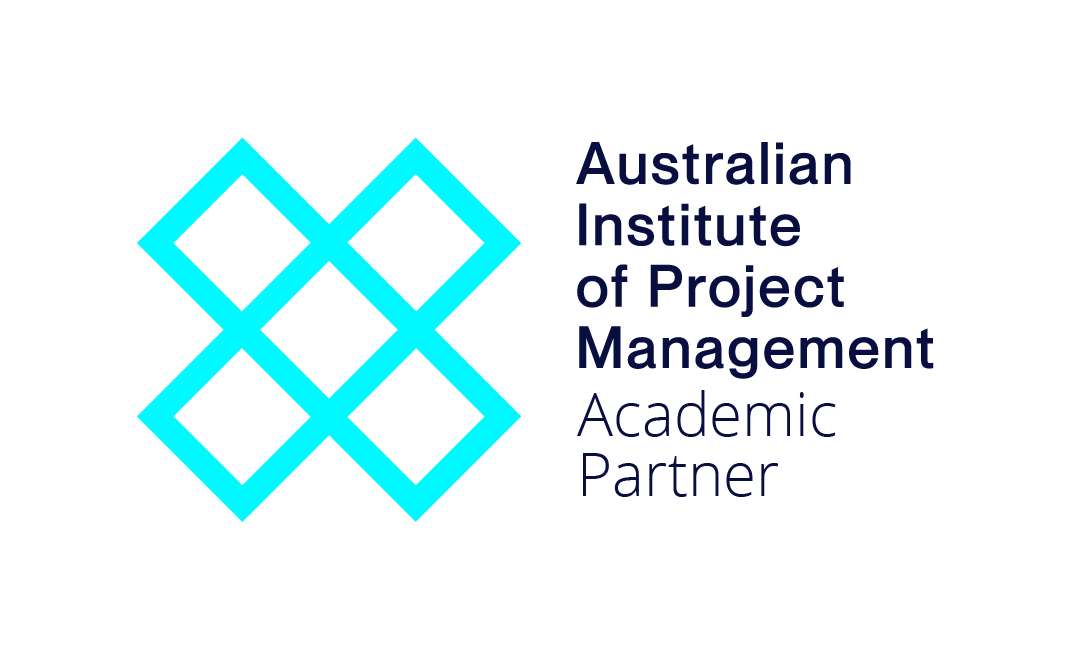Overview
Prepare for a rewarding project-management role, or learn new skills for your current project-management position, with a graduate qualification from VU.
The Graduate Diploma in Project Management is one of a suite of courses designed for current or potential project managers in industry. You’ll learn specialised project management principles and techniques. You can apply the skills you learn during this course to projects in sectors including:
- administration
- business
- engineering and construction
- information technology.
The internationally-recognised A Guide to the Project Management Body of Knowledge (PMBOK® Guide) underpins all our project-management teaching. We have strong industry connections, which give you access to current work-based scenarios. These combine for a practical, usable and valued skill set.
This qualification provides you with valuable recognition in the industry.
If you’re aiming for a leadership or high-level management role, our Master of Project Management will give you the qualifications and skills to get there.
Once you’ve successfully completed your graduate diploma, you’ll gain entry to the Master of Project Management – and you’ll already be half way to completing the masters degree.
Study in convenient eight-week blocks
Following the overwhelming success of the revolutionary VU Block Model with undergraduate students, we rolled out the Block Model to our postgraduate courses.
This course is delivered in eight-week mode, which means you study two units (subjects) at a time over eight weeks (or one unit at a time over eight weeks for part-time study), rather than juggling several units at once. And with its focused timetables and smaller, collaborative classes, VU’s Block Model gives you more time to connect with your peers, lecturers and industry partners, helping you to build strong professional networks.
The VU Block Model has improved our student results and engagement, and has won multiple international awards for innovation and excellence.
Up-to-date project management techniques
Our course includes the latest project management methods, trending across the various industries.
Our lecturers are experienced project managers. Through strong connections to industry we keep up to date on current project-management requirements.
Some of the latest global trends in project management we teach include being customer-focused and agile.
A campus with everything
Footscray Park has everything you need, all set within a pleasant stroll from the Maribyrnong River and parklands.
Facilities include:
- aquatic and fitness centre
- learning common spaces with WiFi, tables and chairs
- restaurants and café
- state-of-the-art lecture theatres.
Library & computer facilities
Our campus libraries have photocopying, computing and printing facilities as well as electronic and print resources.
You'll also have access to a rich collection of online resources at any time of the day or night, including:
- databases
- e-learning content for courses
- student email
- student software packages
- social networking tools.
On campus, we make sure that all of our students have access to digital resources. We offer:
- excellent WiFi networks
- more than 4000 computers (PCs and Apple Macs) across our campuses
- a central IT helpdesk for technical help.
Need some advice?
Request a call back from one of our experienced VUHQ course advisers to get your questions answered.
Request a call backAIPM endorsment

The Graduate Diploma in Project Management course is endorsed by Australian Institute of Project Management (AIPM). Upon the completion of the endorsed qualification and joining AIPM as an Associate or Member, students are entitled to automatic recognition for AIPM’s Certified Practising Project Practitioner (CPPP).
Careers in project management
Once found only in construction, project management has expanded to include almost every industry. Areas which employ project managers include:
- administration
- business
- construction
- engineering
- health services sector
- information technology
- public sector
- science.
Salaries
See average salaries for project managers in Australia in various industries (via Labour Market Insights):
- construction managers
- engineering managers
- ICT managers
- other specialist managers, e.g. environmental, lab, sports.
Please note, salaries vary depending on experience.
Organisations employing project management graduates
Project managers are employed across a huge variety of industries. Following your graduate diploma, you could find work managing projects in private business or the public sector.
Our graduates have found work in companies including:
- Grocon
- Leighton Contractors
- Woodburne Consulting
- Savills Project Management
- Major Projects Victoria
- project-management consulting firms.
Course structure
To attain the Graduate Diploma in Project Management students will be required to complete:
-
72 credit points of Core studies
-
24 credit points of Elective units
Course structure and units
Core Units:
-
- Unit code
- EPM6001
- Credits
- 12
-
- Unit code
- EPM6002
- Credits
- 12
-
- Unit code
- EPM6004
- Credits
- 12
-
- Unit code
- EPM6005
- Credits
- 12
-
- Unit code
- EPM6006
- Credits
- 12
-
- Unit code
- EPM6007
- Credits
- 12
Plus
24 credit points from the approved electives list:
Elective Units
-
- Unit code
- BMO6050
- Credits
- 12
-
- Unit code
- BMO6506
- Credits
- 12
-
- Unit code
- BMO6622
- Credits
- 12
-
- Unit code
- EPM6008
- Credits
- 12
-
- Unit code
- EPM6009
- Credits
- 12
-
- Unit code
- EPM6010
- Credits
- 12
-
- Unit code
- EPM6011
- Credits
- 12
Learning outcomes
On successful completion of this course, students will be able to:
| 1. | Critically analyse and adapt advanced project management models and principles to design and evaluate solutions for complex scenarios, integrating social, ethical, environmental, and economic factors; | ||
| 2. | Conceptually map and implement comprehensive organisational and management frameworks that optimise strategic objectives across various project performance domains; | ||
| 3. | Devise and validate comprehensive project management plans to address complex organisational initiatives across diverse stakeholder environments; | ||
| 4. | Synthesise professional standards, regulatory frameworks and industry best practices to lead ethically sound and compliant project management initiatives; and | ||
| 5. | Interpret and critique advanced organisational theories and disseminate evidence-based recommendations, demonstrating project management leadership competencies. |
What's a unit?
A unit or 'subject' is the actual class you'll attend in the process of completing a course.
Most courses have a mixture of compulsory 'core' units that you need to take and optional elective units that you can choose to take based on your area of interest, expertise or experience.
Credits
Each unit is worth a set amount of study credits based on the amount of time you study. Generally, 1 credit is equal to 1 hour of study per week.
Fees & scholarships
Fee type for this course: Full-fee
Fee type definitions
The amount you pay for your course depends on whether you’re offered a Commonwealth supported place (CSP) or a full fee-paying place.
Students who enrol in a:
- Commonwealth supported place pay tuition fees that are partly subsidised by the Australian government
- full fee-paying place need to pay the full amount for all enrolled units before census each study period.
In addition to your tuition fees, you may also be charged a Student Services & Amenities Fee (SSAF).
Scholarships & assistance
Apply for a scholarship to help with your study costs.
We can help with fee assistance and advice.
Admission & pathways
Meeting the minimum admission requirements does not guarantee you entry into this course. Some courses receive more applications than the number of places available. In this situation we will also assess your education, work and other relevant experience.
If you do not meet the minimum requirements you may be eligible for one of our special admission programs. We also encourage you to explore our study pathways to help you reach your goal.
Find out more about how to apply for our courses, and our commitment to admissions transparency.
Entry requirements
Completion of an Australian Bachelor degree (or equivalent) in any discipline
OR
Completion of an Australian Graduate Certificate (or equivalent) in a similar discipline
OR
Applicants with a minimum three (3) years approved work experience will be considered for admission to this course.
Pathways from VU courses
There are many ways you can start your education journey at VU. Pathways offer an easy transition between courses at different levels, so that you can start with a certificate and progress right through to postgraduate study.
Find out more about pathways and credits.
Credit for skills and past study
Use our credit calculator to find out how much credit you could get towards your course, based on your previous study.
If you have completed study with another university or institution and believe you are eligible to receive credit for skills and past study, you can apply for advanced standing.
Applications for advanced standing can be made after a discussion with your course chair or academic adviser.
How to apply
Available start dates:
- 27 July 2026
Before you apply
Before applying, you should consider whether you also want to apply for:
- Special admission programs: Depending on your life circumstances you may be eligible for special consideration of your application.
- Advanced standing: If you have significant experience or studies elsewhere you may be eligible for credit for some units of your course and not have to undertake them.
Find out more about applying for our courses.
Apply direct to VU
Direct applications are due on 19 July 2026 for our next intake which starts on 27 July 2026.
Already a VU student?
If you are already a VU student, apply direct to VU using our Admissions centre to transfer into this course. Remember it’s best to be accepted into your new course before withdrawing from your current one.
After you apply
- It’s important to check for emails from us (which may go to your spam/junk folder).
- Complete any requests for information by the given dates, otherwise your application may not be considered
Enquire now
Please fill out the form below, and we'll get back to you shortly.
Get help
- Visit a student service centre
- 1300 VIC UNI (1300 842 864)
- Request a call back
- Visit the glossary
At Victoria University, we aim to display accurate and complete course information online. However, we are unable to guarantee that every course change is currently displayed. You may contact the University directly on +61 3 9919 6100 to confirm the most up-to-date course fees, pathways and credit transfer, recognition of prior learning, admission and enrolment procedures, examinations and services available to our students.



